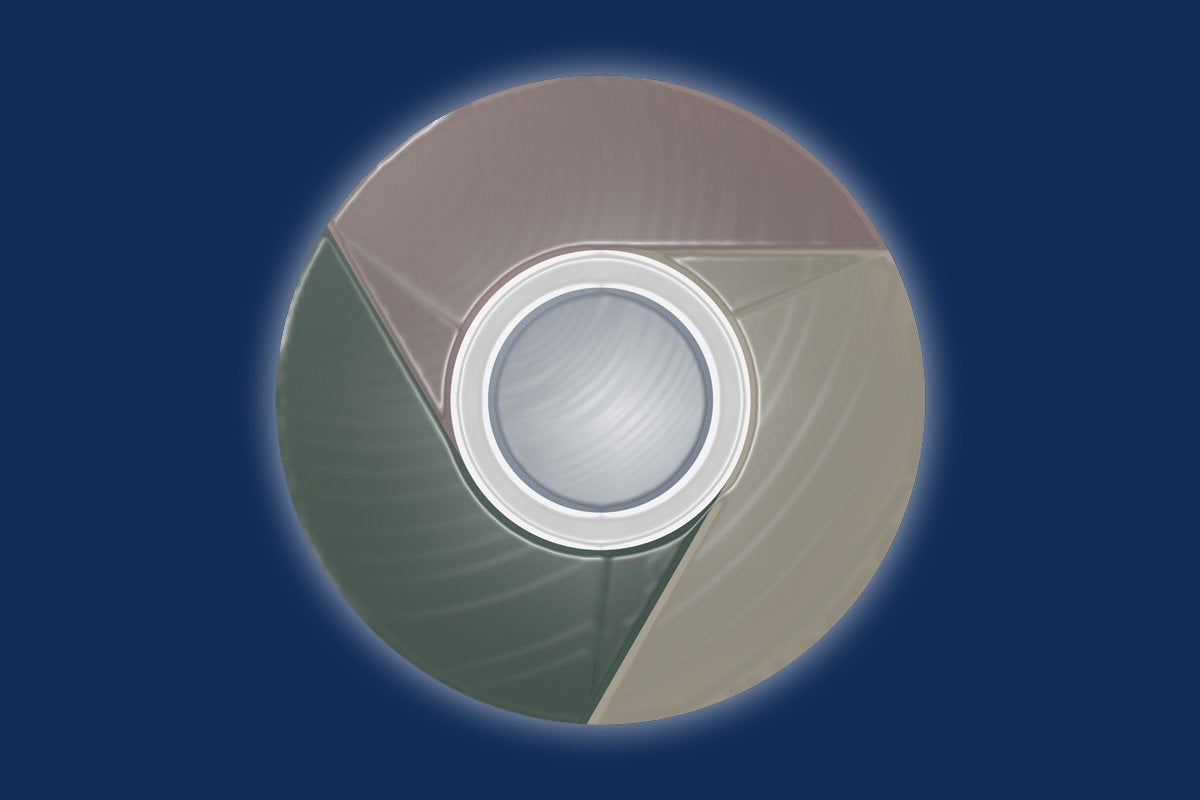Well, I'll be: Just over a month after we talked about how Google needed to rethink its Chrome OS upgrade standard, the company has quietly launched a new effort to improve the state of Chromebook software updates.
Now, don't get too excited yet. This is a small start, to be sure — but it's at least an acknowledgment that the Chrome OS upgrade situation could and should be better. And that's a pretty significant step.
Before we get into what's changing, let's back up for a quick second to set the stage — because context really is everything in this situation. After all, Chrome OS upgrades are by and large commendable — particularly compared to how upgrades play out over on the Android side of the Google operating system fence. The reason's simple: Given the close manner in which Google controls Chrome OS and the lack of flexibility it gives device-makers in modifying the software, the company's able to provide a completely consistent experience from one Chromebook to the next. And as a result, Google itself is able to handle all Chrome OS software updates directly, which means every device gets 'em at more or less the same time — no matter who made the hardware.
Suffice it to say, that's a pretty sharp contrast to the upgrade situation we see on Android, where device-makers are free to modify the operating system and consequently end up being responsible for processing and delivering updates for their own devices. If I had to sum up the effect that has on a typical Android device-owner in three words, I'd say: "It ain't pretty." Or maybe: "Yeah. Good luck."
So what's the problem with Chrome OS upgrades, then, if not the speed and reliability with which they're delivered? Well, the issue is actually three-fold:
- Every Chromebook comes with a built-in end-of-life date — a date at which it'll no longer receive software updates — but that information is absurdly out of the way and difficult to find. It's listed only inside an obscure Google help document, which no normal person would ever even know exists, let alone think to seek out and consider prior to buying a new device.
- That end-of-life timing is wildly inconsistent. It's based on when a Chrome OS device using any given processor first appeared on the platform, which makes it about as clear as mud to the typical laptop buyer. It also means an $800 device released today might receive less than five years of software support while a low-end laptop released tomorrow might get six and a half. From the perspective of actual human beings who pay for and rely on these products, it's pretty forkin' screwy.
- The standard maximum amount of time any Chrome OS device receives software updates is six and a half years, which really isn't much when you consider that lots of high-end Chromebooks now cost anywhere from several hundred bucks to well over a grand — and that similarly priced Windows systems remain reasonably updated for considerably longer.
So that's the foundation. As for what Google's doing to address it, well, there are a few things — and the company assures me we'll see more in the months ahead.
For now, first and foremost, Google is extending the end-of-support dates for a bunch of existing Chromebooks. That aforementioned Google help document has been updated to reflect the changes, though there's no easy way to see which devices have had their life spans increased and which have stayed the same.
If you compare the current page to the Internet Archive version of it from a couple weeks ago, though, you'll see that quite a few Chrome OS products did indeed receive extensions. The extensions are by no means universal, and some are more generous than others, but a fair number of extra months have been tacked on across the board.
Honestly, it all seems a bit random from the outside. Some scattered examples:
- The expiration date for the Acer Chromebook we talked about last time — the Chromebook 715, which just came out in October and sells for as high as $780 — has not been changed. That system is still set to receive its last update in June 2024, less than five years after its launch. [Update: Well, how 'bout that? The 715 ended up getting an extension after all! In an apparent second round of changes following the original batch of extensions, Google pushed the device's end-of-support date to June 2025 — which still leaves it falling short of that six-and-a-half-year mark but is certainly an improvement, even so.]
- Acer's Chromebook 11 C740, however, got a full year of added support, moving from June 2020 to June 2021 for its final update.
- Two other Chromebook 11 models, the CB3-131 and C735, got extended by about eight months — from January 2021 to September of that same year.
- The Acer Chromebook Spin 11 got a seven-month stay of execution, moving from November 2023 for its end-of-support mark to June 2024.
- The Acer Chromebook R13 got nearly three years of added support, moving from September 2021 all the way to June 2024.
- Asus's latest Chromebook Flip, the C434 model, was extended a full two years — going from June 2024 all the way to June 2026.
- The oldest Flips in the list, the C100PA and C101PA models, weren't changed; they're sticking with their original July 2020 and August 2023 dates, respectively.
- The Chromebook Flip C302 got a seven-month extension and went from November 2022 to June 2023 for its last-update date.
- Dell's Chromebook 11 3120 got a bump of just over a year, going from June 2020 to September 2021.
- The Dell Chromebook 11 3180 got a single-month extension, oddly enough, moving from May 2022 to June 2022.
- Google's own second-gen Chromebook Pixel (the 2015 model) received a full year extension, with its date shifting from June 2020 to June 2021.
- Google's Pixel Slate got an extra two years, going from June 2024 to June 2026.
- The Google Pixelbook didn't get an extension. As of now, at least, it still has the same June 2024 date it's had all along.
- Samsung's Chromebook 3 got a full year of added support, with a change from June 2021 to June 2022.
- Samsung's Chromebook Pro got an extra seven months, shifting from November 2022 to June 2023.
So, yeah: The results are kind of all over the place. But there's no question a lot of extensions are being granted. If you have (or your company uses) a model that isn't among those listed above, the best thing to do is simply to look at this page to find it and see what its current expiration date is — and then, if you're curious if and how the date evolved, to look back at this archived version of the page to compare.
That's part one. Second, beyond these one-off changes for existing devices, Google tells me it'll be extending the periods of active support for future devices, with the goal of bumping up the support time for new processors on the platform by 15 to 30 percent compared to the current standard. That'd come out to roughly an extra year to two years from when a processor first appears in a Chromebook — so instead of that maximum support window being six and a half years, in other words, it could be more like seven and a half to eight. The idea, it seems, is to evaluate each new device on a case-by-case basis instead of sticking blindly to a static standard. That makes a lot of sense.
And finally, Google's planning to make each device's end-of-support date more accessible by adding that info into the Chrome OS settings. That'd mean you could go into your Chromebook's settings and find the date of its final software update right then and there.
This is all positive progress, without a doubt. But it doesn't completely address the issue.
For regular folks buying Chrome OS devices, the end-of-life date is still too far out of sight and out of mind. That information is critical to understanding how long your Chromebook will remain viable and what sort of value you're getting out of the purchase. I mean, come on: A $800 Chromebook that'll remain viable for eight years is a dramatically different purchase than a $800 Chromebook that'll become inadvisable to use just four and a half years down the road.
It shouldn't be up to the person buying the product to somehow know that such a factor exists and then to dig up the details (whether in that out-of-the-way help document or in the system settings you'll see only after you own a device). As I said when we last discussed this, the date should be clearly placarded on a computer's packaging and made easy to find and understand: "This computer will receive operating system and security updates through June of 2024. Visit google.com/chromebook/expiration to learn more about why that matters." This isn't a scavenger hunt, for cryin' out loud. It shouldn't feel like one.
The case-by-case evaluation and extension of a Chromebook's end-of-support date is clearly a good thing, meanwhile, though I'm not entirely convinced it's as much of a positive change or as consistent of one as what's needed. That brand new $780 Acer Chromebook that's still sitting at less than six years of remaining support even after its adjustment is the perfect example of why I remain skeptical. (And that's a great example, too, by the way, of the type of device someone could very easily buy without any awareness of its unusually short life span. Placard it.)
All in all, though, you know what? This is definitely a step in the right direction. Any progress is good progress, and it's easy to frame this as a win — which it is! I'd just suggest waiting to celebrate until we see how things progress in the months ahead and we actually know for sure how the final result ends up looking.
Sign up for my weekly newsletter to get more practical tips, personal recommendations, and plain-English perspective on the news that matters.

[Android Intelligence videos at Computerworld]


























































